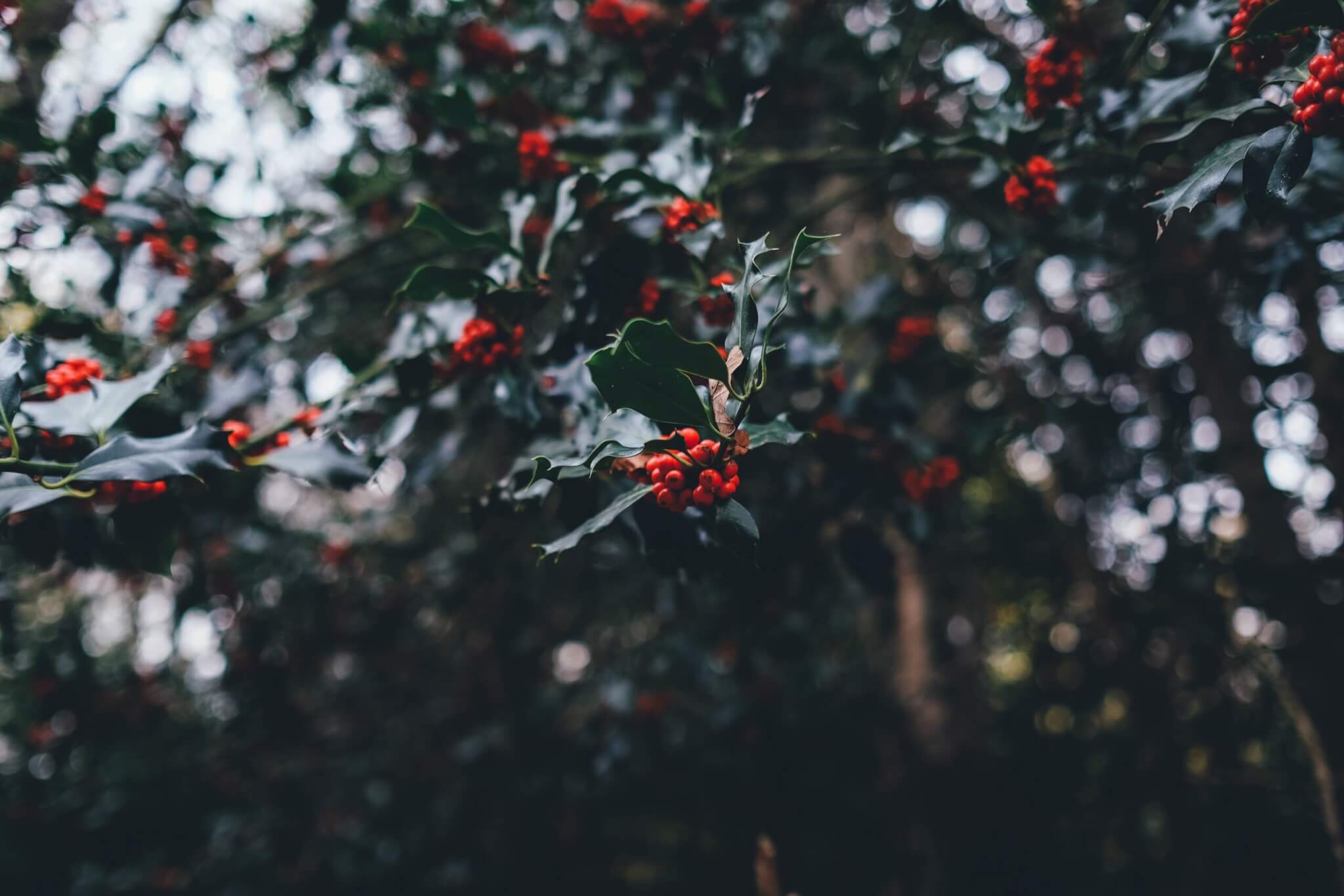Reflections on a Christmas Poem

Anne Ridler’s “Christmas and the Common Birth” is one of the most thought provoking poems I’ve ever read at Christmas time, and worth quoting in full:
Christmas declares the glory of the flesh:
And therefore a European might wish
To celebrate it not at mid winter but in spring,
When physical life is strong,
When the consent to live is forced even on the young,
Juice is in the soil, the leaf, the vein,
Sugar flows to movement in limbs and brain.
Also before a birth, nourishing the child
We turn again to the earth
With unusual longing – to what is rich, wild,
Substantial: scents that have been stored and strengthened
In apple lofts, the underwash of woods, and in barns;
Drawn through the lengthened root; pungent in cones
(While the fir wood stands waiting; the beechwood aspiring,
(Each in a different silence), and breaking out in spring
With scent sight sound indivisible in song.
Yet if you think again
It is good that Christmas comes at the dark dream of the year
That might wish to sleep ever,
For birth is awaking, birth is effort and pain;
And now at midwinter are the hints, inklings
(Sodden primrose, honeysuckle greening)
That sleep must be broken.
To bear new life or learn to live is an exacting joy;
The whole self must waken; you cannot predict the way
It will happen, or master the responses beforehand.
For any birth makes an inconvenient demand;
Like all holy things
It is frequently a nuisance, and its needs never end;
Freedom it brings: We should welcome release
From its long merciless rehearsal of peace.
So Christ comes
At the iron senseless time, comes
To force the glory into frozen veins:
His warmth wakes green life glazed in the pool, wakes
All calm and crystal trance with the living pains.
And each year
In seasonal growth is good – year
That lacking love is a stale story at best
By God’s birth
Our common birth is holy; birth
Is all at Christmas time and wholly blest.
The poem begins with a startling statement: “Christmas declares the glory of the flesh.”
Surely not. Surely Christmas declares the glory of the heavenly God. I always assumed that the fleshly world, to the extent that it was involved at all, was the mess that needed saving, whose broken state imposed upon the Lord of heaven, demanding His earthward attention as a favor.
But really, what else could the Incarnate God possibly do but glorify the flesh he wore? What does it mean to “save” the world, anyway? Surely not to annihilate it. Instead, Ridler suggests, the Incarnation sanctifies all this fleshly world: “By God’s birth, our common birth is holy.” God’s presence in the physical world imbues it with significance and glory.
Furthermore, Ridler challenges us to look for this significance beyond the obvious parallels of nature. Certainly, the restless energy of springtime provides ample evidence of God’s presence. The “unusual longing” of a pregnant mother for the “rich, wild, substantial” earth hints at His working in the fertility of the world.
And yet, the dead midwinter of Christmas – “the iron, senseless time” – may offer an image even more powerful. Life comes out of death, pleasure out of pain, joy out of sorrow – and salvation always comes from outside, an alarm bell sounded to a world that “might wish to sleep ever.” Just as birth is a hard and painful awaking from sleep, God’s salvation makes an “inconvenient demand” on all flesh: Live! Come to be! Radiate glory!
Ridler suggests that the true glory of this fleshly world is found not in its easy, pre- Advent fecundity, but in the “green life” forced into its “frozen veins” by the birth of Christ. Thank God, we live in a world of birth, and waking, and Incarnation. And thank God for Christmas, when “birth is all…and wholly blest.”
Adam Andrews
Adam Andrews is director of Center For Lit and a homeschooling father of six. He and is wife Missy are the authors of Teaching the Classics: a Socratic Method for Literary Education, which presents a step-by-step method for teaching literature in grades K-12. Center For Lit offers curriculum materials and support for parents, teachers and readers at http://www.centerforlit.com">www.centerforlit.com











